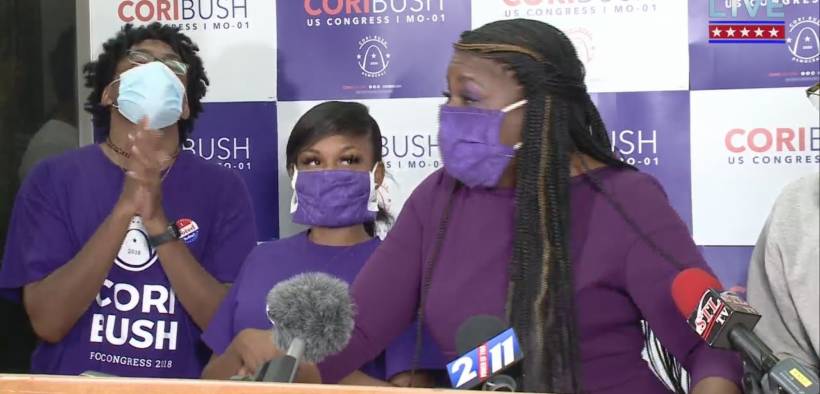The Squad Strengthened by Primary Victories

Cori Bush, activist and nurse, was the highlight of the results as she defeated a Missouri political dynasty in her Democratic primary.
Two big Democratic victories are being held as a benchmark for the success of “The Squad”, a group of four freshman congresswomen that will see its numbers grow after November’s elections.
The most surprising of the two victories was Cori Bush in Missouri’s 1st Congressional District. Bush, a nurse and Ferguson protester, defeated 10-term incumbent William Lacy Clay, whose father served the same district for 32 years.
Bush was endorsed by Democratic Socialists of America and Justice Democrats, and she built her campaign around local issues and a more left brand of politics.
Missouri also passed a ballot initiative to expand Medicaid, following the footsteps of Oklahoma.
The other victory was for an incumbent, Representative Rashida Tlaib who was tipped as the most vulnerable Squad candidate. In the end, she won her primary with 66% of the vote, a much higher margin than she beat challenger Brenda Jones two years ago.
Tlaib tweeted, “headlines said I was the most vulnerable member of the Squad. My community responded last night and said our Squad is big. It includes all who believe we must show up for each other and prioritize people over profits. It’s here to stay, and it’s only getting bigger.
Adding Numbers
Other members of the Squad and more left-wing members of Congress took a victory lap after the recent results in Missouri and Michigan.
Representative Alexandria Ocasio-Cortez, who had similar endorsements to Bush when she knocked off a 10-year incumbent, celebrated Bush’s and Tlaib’s victories. She retweeted a year-old quote from a senior Democratic source that said of the Justice Democrats, “no one is afraid of those nerds. They don’t have the ability to primary anyone.”
Bush’s victory adds to previous left-wing primary victories in New York, including Jamaal Bowman’s win over 16-term incumbent Eliot Engel.
The Squad was treated by many within the Democratic establishment as a fluke, and many viewed top party brass as dismissive of the freshmen congresswomen.
Speaker of the House Nancy Pelosi said in 2019 of the four members of the Squad, “all these people have their public whatever and their Twitter world . . . But they didn’t have any following . . . They’re four people, and that’s how many votes they got.”
Despite being only a small faction within the Party, Congresswomen Ocasio-Cortez, Tlaib, Ilhan Omar, and Ayanna Pressley have highlighted a growing split within the Democratic Party that only seems to be growing.
Heading into November
Presidential poll numbers have dominated political headlines as Trump has struggled to regain his 2016 mojo.
Less attention has been paid to what Congress might look like after November’s elections. Headlines have asked if 2020 will be another Blue Wave year, and while the House is projected to remain in Democratic hands, the Senate is still very much up-in-the-air.
Politico and the Cook Political Report project 6 senate races are too close to call, with a 47-47 split after other elections are projected. The six toss-up races are currently held by Republicans.
In Colorado, Republican Senator Cory Gardner is facing a slugfest with former Democratic Governor John Hickenlooper. Polling has been scant on the Gardner-Hickenlooper race, but it suggests Hickenlooper is holding a lead.
Hickenlooper defeated a left-wing challenge in the primary from Andrew Romanoff, and Hickenlooper is a centrist Democrat.
If Democrats do manage to wrest control of the Senate, a proposition still with many question marks, it would set up a potential deepening split within the party.
Establishment Democrats have endorsed incumbents over progressive challengers including Nancy Pelosi and Kamala Harris endorsing Clay over Bush and Senate minority leader Chuck Schumer endorsing Engel over Bowman.
Regardless of the exact result in November, the Democratic establishment will have to reckon with a strengthened left-wing faction within Congress.















